Iranian Embassy probes deaths of two citizens in northern France shooting
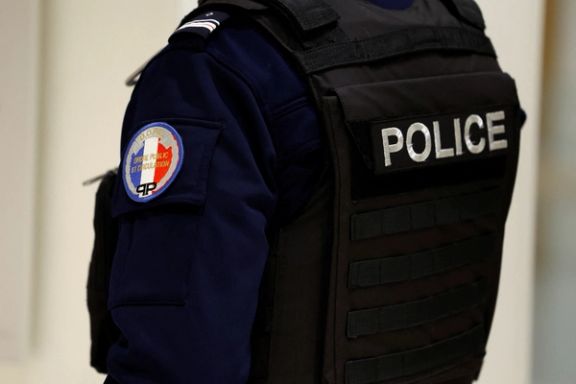
The Iranian Embassy in France announced Thursday that it is actively investigating the deaths of two Iranian citizens in a shooting in northern France.

The Iranian Embassy in France announced Thursday that it is actively investigating the deaths of two Iranian citizens in a shooting in northern France.
“In line with the inherent duties of the Ministry of Foreign Affairs and diplomatic and consular missions to defend and support citizens abroad, the matter is being actively pursued,” the embassy said in a statement published by Iranian media.
According to Le Monde, five people were killed in northern France on Saturday, including two Iranian men, aged 19 and 30, who were living in a local migrant camp.
A 22-year-old suspect surrendered to authorities and was taken into custody on the same day.
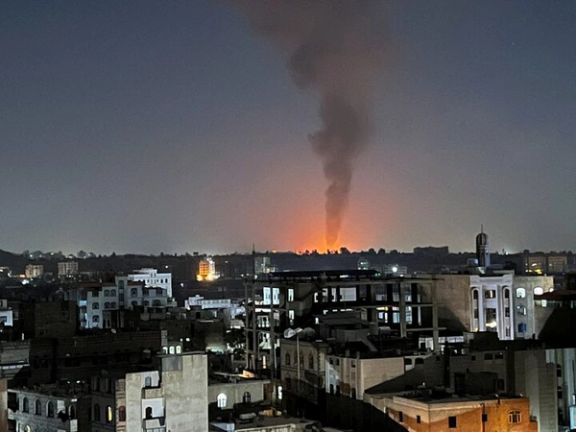
Israel launched a series of airstrikes across Yemen on Thursday morning targeting key infrastructure in territories controlled by Iran’s Houthi allies in the wake of a missile strike overnight.
Since October 7, when Iran-backed Hamas invaded Israel sparking the Gaza war, Iran’s Houthis in Yemen have launched more than 200 missile and 170 drones at Israel, most of which were intercepted before reaching Israeli territory.
But the early Thursday morning attack, which badly damaged a school in Ramat Gan, north of Tel Aviv, triggered a wave of counterattacks, after almost daily firing from Yemen over recent weeks.
Israel sent 14 fighter jets that flew a distance of more than 1,700 kilometers, among the targets, the ports of Ras Issa, Hodeidah and al-Salif. A total of eight tugboats were attacked and in Sana'a, fuel tanks, oil, and a power plant were hit. Nine people were believed to have been killed in Yemen so far.
The attacks, which followed the missile strike on Israel at 2:38am, began at 3:15am, the first wave in the coastal area of Yemen, and the second wave at 4:30am in the Sana'a area.
The Houthis have been targeting Israel directly along with imposing a maritime blockade on the Red Sea region. Initially aimed at forcing a ceasefire in Gaza, and targeting Israeli-linked shipping, it has since expanded to all international shipping, with dozens of international seamen taken hostage since it began in November 2023.
A statement from the Israeli military said IAF fighter jets worked with the direction of the Intelligence Directorate and the Israeli Navy.
Calling out Iran for its role in the more than one year bombardment, having funded, trained and armed the group, designated terrorists by countries including the US and UK, the military said: “The targets struck by the IDF were used by the Houthi forces for military purposes. The strikes degrade the Houthi terrorist regime, preventing it from exploiting the targets for military and terrorist purposes, including the smuggling of Iranian weapons to the region.
“Over the past year, the Houthi terrorist regime has been operating with the direction and funding of Iran, and in cooperation with Iraqi militias in order to attack the State of Israel and Israeli civilians, undermine regional stability and disrupt global freedom of navigation.”
Israeli Prime Minister Benjamin Netanyahu said on Thursday that the strikes represent the further collapse of Iran's network of military allies which Israel has been fighting in the wake of last year's Iran-backed Hamas invasion of Israel on October 7.
"After Hamas, Hezbollah and the Assad regime in Syria, the Houthis are almost the last arm of Iran's axis of evil. They are finding out, and will find out, the hard way that whoever harms Israel – will pay a very heavy price," he said, referring to a devastating campaign against Iran's largest ally, Hezbollah, in recent months, and more than a year of war against Gaza-based Hamas, which has left the group massively weakened.
In July, the US levied yet more sanctions against members of the Houthis for involvement in financing. “The Houthis in Yemen continue to receive vast revenues from the illicit shipment of Iranian commodities. This funding stream enables the Houthis’ ongoing attacks against commercial shipping in the Red Sea and surrounding waterways,” a statement from Matthew Miller, the State Department spokesman said.
According to the Council of Foreign Relations, Iranian military support to the Houthis began as early as 2009, amid the Houthis’ first war against Yemen’s government.
“Most experts agree that the Houthis were receiving weapons from Iran by 2014, the year they captured Sanaa. In both cases, military intervention against the Houthis by Iran’s regional rival, Saudi Arabia, likely catalyzed Tehran’s increased interest in the group,” research from the think tank found.
The group, like Hezbollah in Lebanon and Hamas in Gaza, have become part of what is known as Iran’s ‘axis of resistance’ of militia around the region, formed by Supreme Leader Ali Khamenei as a means to bolster power and bring down Israel and the US presence in the Middle East.
Israeli Defense Minister Israel Katz said on Thursday morning: ”We attacked strategic targets of the Houthi terrorist organization in Yemen once again tonight … We will not accept rockets being fired at Israel, nor damage to shipping lanes. We will strike with force and will not allow the continuation of the situation of shooting and threats against the State of Israel."
In the aftermath of the attacks, Muhammad al-Bahithi from the Houthi political bureau, said that "the American-Israeli attack on civilian facilities in Yemen, power plants and ports, exposes the hypocrisy of the West”, though Israel and the US had not confirmed their involvement in the strikes overnight.
The US and UK have, however, launched a series of joint strikes against the Houthis since the blockade began last year, the US heading an international coalition to combat the action which has massively impacted global shipping.
“Our military operations in support of Gaza will continue, escalation will be met with escalation until the genocide in Gaza stops and food, medicine and fuel are brought in for the residents,” al-Bahithi said.
On Thursday, the Israeli military said that an interception had led to shrapnel damage in the wake of the attack.
"It is likely that the damage was caused by partial interception of the missile launched from Yemen and that the missile warhead was the part that exploded and damaged the school," a statement said, an investigation underway.
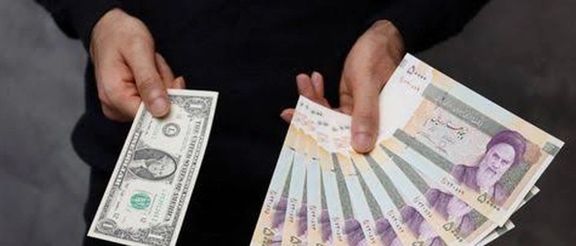
The US State Department said on Wednesday that its ongoing sanctions have played a significant role in the sharp devaluation of the Iranian rial to record lows against the US dollar.
During a briefing on Wednesday, Deputy Spokesperson Vedant Patel highlighted that the sanctions have contributed to Iran's inability to meet its budget projections.
“As a result of US sanctions, Iran's government has failed to meet its budget projections again this year,” Patel said. “The rial is the lowest it has ever been against the dollar."
He also pointed to the broader economic impact, saying that sanctions have disrupted Iran's access to essential goods, services and technology.
"These efforts all work to cut off Iran's ability to perpetuate destabilizing actions across the region," he added, stressing the ongoing determination of the United States and its allies to prevent Iran from generating revenue.
Critics of Biden's Iran policy have long argued that his administration has allowed China to increase imports of sanctioned Iranian crude oil since 2021, allowing the shipments to increase from less than 300,000 barrels per day in 2020 to around 1.5 million in 2024.
In the latest in a wave of sanctions, the State Department announced on Wednesday that it targeted Majid Mousavi Eftekhari, Deputy Commander of the IRGC Aerospace Force, and two entities based in Iran for their support of the development of Iran's ballistic missile and drone programs.
The Iranian rial’s dramatic fall continues to exacerbate the country’s economic crisis. On Wednesday, the rial was trading at over 780,000 to the US dollar.
This sharp decline, coupled with soaring inflation, has eroded the purchasing power of ordinary Iranians, leaving many struggling to afford basic goods and services.
Iran’s economic woes are further compounded by a severe energy crisis. The country is grappling with critical shortages in electricity and natural gas, with supply failing to meet demand, especially during the cold winter months.
Power outages have become a frequent occurrence, even in major cities like Tehran. The energy crisis has reached alarming levels, with insufficient infrastructure investment, inefficiencies in energy management, and sanctions blocking access to advanced technology further exacerbating the situation.
As Iran faces its most severe economic downturn in decades, the Iranian population’s resilience is being tested as never before, with increasing uncertainty about the government’s ability to manage the nation’s worsening crises.
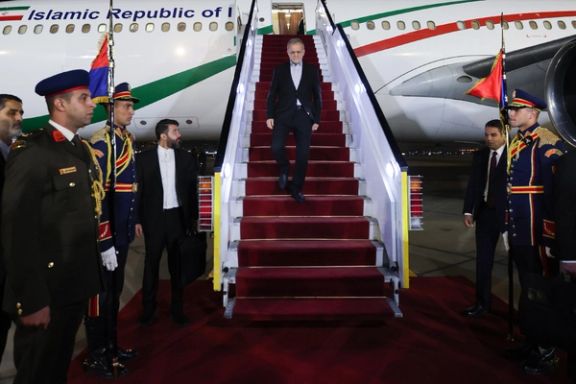
Iranian President Masoud Pezeshkian has traveled to Egypt to attend an economic summit in a rare visit that may signal thawing relations between the Islamic Republic and the Arab world's most populous nation.
Pezeshkian arrived in Cairo on Wednesday to attend in summit of the eight major Muslim developing countries, known as the D-8 Organization for Economic Cooperation, slated to be held Thursday.
"The more we can strengthen relations with Islamic countries, the more we can thwart threats against Iran," said the president as before he departed for Egypt.
Earlier in the day, the head of Iran's Interests Section in Cairo Mohammad Hossein Soltanifar said that Iran can cooperate with Egypt in all spheres and take positive steps towards upgrading bilateral relations.
“This trip would mark a final step towards upgrading bilateral relations to the embassy level," he added.
The visit is the culmination of months of discreet diplomatic efforts, primarily facilitated by Iraq and Oman.
Last year, Iranian lawmaker Fada-Hossein Maleki, a member of the parliament’s National Security and Foreign Policy committee, said that talks to bolster ties between Iran and Egypt were being held regularly in Iraq, predicting that bilateral relations between Iran and Egypt would soon be restored, including the reopening of embassies.
Iran’s relations with Egypt, a close ally of Saudi Arabia and other Persian Gulf Arab nations, have been fraught since the Shah fell in 1979. The Shah sought refuge in Egypt during the presidency of Anwar Sadat, straining ties.
Iran named a Tehran street after Khaled Eslamboli, Sadat's Islamist assassin. The name was changed following the recent resumption of Iran’s ties with Saudi Arabia in anticipation of further extending the regional rapprochement.
Relations improved after President Hosni Mubarak resigned in 2011. In 2012 Egypt's then-President Mohamed Morsi visited Tehran to attend the Non-Aligned Movement summit. However, he was ousted in a military coup led by current Egyptian President Abdel Fattah el-Sisi just a year later.
Iran's Foreign Minister Abbas Araghchi visited Egypt in October. Sharing a photo of himself at Cairo's famous Abu Tarek restaurant, he lamented the absence of a similar Egyptian restaurant in Tehran.
Since last year, Egypt has permitted direct flights from Tehran.
The last time an Iranian president visited Cairo was in 2013 when Mahmoud Ahmadinejad attended an OIC summit during Mohamed Morsi's presidency.
Last year, Iranian Supreme Leader Ali Khamenei greenlit the resumption of relations, saying, "there are no obstacles to this."
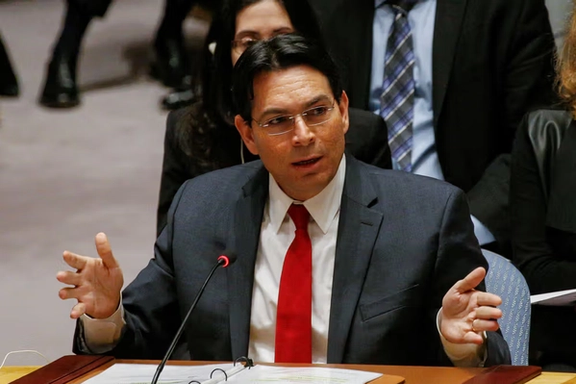
Israel’s Ambassador to the United Nations urged the Iranian people to seize what he described as a historic opportunity to bring down the Islamic Republic and what he described as its "Shi'ite supremacist empire".
“People of Iran, do not miss this historic opportunity. Act now. The people of Israel stand with you,” Danny Danon, speaking in strained Persian, said during a Security Council meeting on Wednesday in remarks aimed at Iran's people.
His speech is part of Israel’s effort to spotlight the threat it says its arch-enemy the Islamic Republic poses to the Middle East and comes after Tehran's key Arab ally Bashar al-Assad in Syria was toppled this month by hardline Sunni insurgents.
“The opportunity to end Iran’s ambitions to create a Shi'ite supremacist empire is within reach,” framing the Islamic Republic as a sectarian menace to global stability.
His rhetoric closely aligns with that of Israeli Prime Minister Benjamin Netanyahu, who has been ramping up his criticism of Iran in recent weeks. Netanyahu, who has long voiced concerns over Iran’s nuclear ambitions and its regional influence, framed the Islamic Republic as the head of a broader destabilizing axis.
“A year ago, I said we'd change the face of the Mideast, and we're indeed doing so. Syria is not the same Syria. Lebanon is not the same Lebanon. Gaza is not the same Gaza. And the head of the axis, Iran, is not the same Iran," Netanyahu said in a statement on Sunday. "It has also felt the might of our arms,” he added, underscoring Israel’s military role in reshaping the region.
At the same time Tehran faces mounting external pressure with historic setbacks to its armed allies in Lebanon and Syria, days-long nationwide shutdowns due to gas and electricity shortages underscore domestic woes.
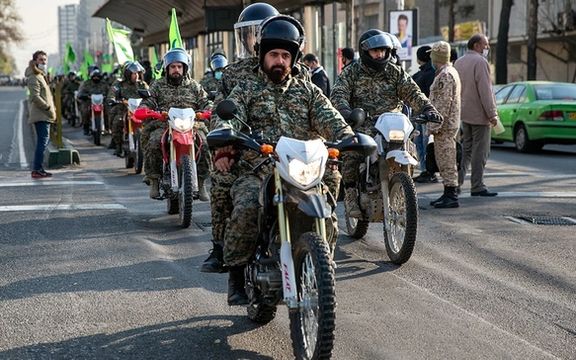
Iran on Wednesday rejected a sweeping United Nations General Assembly resolution condemning Tehran's human rights record the day before, calling it shameful and hypocritical.
This riposte by Foreign Ministry Spokesman Esmail Baghaei came after the UNGA adopted the resolution which criticized the Islamic Republics treatment of prisoners, ethnic and religious minorities and women.
“The proponents of the anti-Iran resolution, including the Zionist regime, the United States, the United Kingdom and Canada, are major violators of human rights," Baghaei said. "This is a source of shame, and the Canadian officials who initiate such actions against our country every year are urged to focus on reforming their actions both inside and outside their country instead of accusing others.”
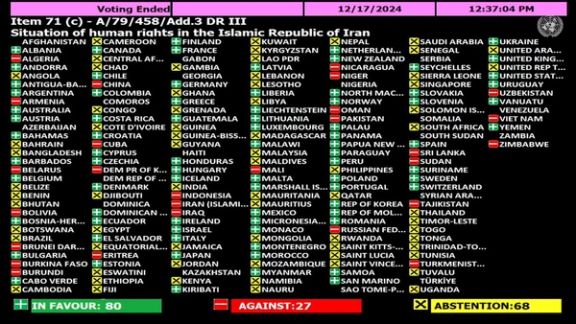
The resolution, which passed with 80 votes in favor and 27 against, criticized the Iranian government’s unlawful use of the death penalty, arbitrary arrests, torture and its persistent suppression of peaceful protests.
It also condemned the Islamic Republic for discrimination against women, ethnic and religious minorities and minors.
Human rights advocates have expressed concern over these abuses and called Tehran’s actions a tool of political repression.
The UNGA called for an immediate halt to executions, many of which are carried out based on forced confessions extracted under torture and without the benefit of fair trials.
In particular, the resolution singles out the government’s pattern of executing political prisoners as evidence of its commitment to silencing dissent.
This marks a continuation of the crackdown on political opposition which has seen approximately 625 executions since the inauguration of Iran’s current president Masoud Pezeshkian in late July, including 22 women.
The resolution also underscored the Iranian government’s ongoing violations of women’s rights, pointing to restrictive laws that discriminate against females.
"(The UNGA) strongly urges the Islamic Republic of Iran to eliminate, in law and in practice, all forms of systemic discrimination and violence against women and girls, in public and private life," the resolution read.
"(It) urges the Islamic Republic of Iran to cease the widespread and systematic use of arbitrary arrests and detention ... (and) calls upon the Islamic Republic of Iran to release women human rights defenders imprisoned for exercising their rights."
The resolution further called for the suspension of all death sentences in Iran.
Baghaei defended his government’s actions and labeled the international accusations “baseless and politically motivated.”